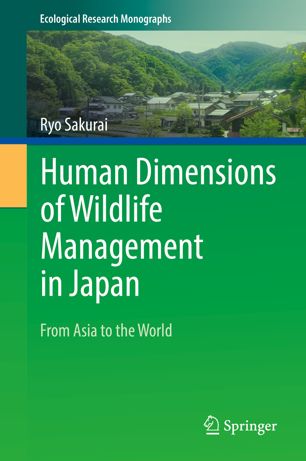

Most ebook files are in PDF format, so you can easily read them using various software such as Foxit Reader or directly on the Google Chrome browser.
Some ebook files are released by publishers in other formats such as .awz, .mobi, .epub, .fb2, etc. You may need to install specific software to read these formats on mobile/PC, such as Calibre.
Please read the tutorial at this link. https://ebooknice.com/page/post?id=faq
We offer FREE conversion to the popular formats you request; however, this may take some time. Therefore, right after payment, please email us, and we will try to provide the service as quickly as possible.
For some exceptional file formats or broken links (if any), please refrain from opening any disputes. Instead, email us first, and we will try to assist within a maximum of 6 hours.
EbookNice Team

Status:
Available0.0
0 reviewsThis book discusses the findings of research on the human dimensions of wildlife management conducted in Japan, demonstrating how such research and approaches have contributed to mitigating human-wildlife conflicts.
Human-wildlife conflicts, including agricultural and property damage as well as occasional casualties, are a global problem for which local residents, managers, and stakeholders around the world are struggling to find solutions. Human dimensions of wildlife management (HDW) is an academic field developed in North America in the 1970s to gather information on the social aspects of human-wildlife issues to help wildlife managers and stakeholders implement effective decision-making measures. However, HDW is not widely recognized or applied outside North America, and few studies have investigated whether HDW approaches would be effective in different cultural settings.
This is the first book written in English to introduce the HDW theories and practices implemented in Asia. Presenting innovative approaches and research techniques, as well as tips on how to introduce HDW methods into culturally different societies, it is a valuable resource not only for researchers and students in this field, but also for government officials/managers, NGOs, residents and other stakeholders who are affected by human-wildlife conflicts around the globe.